Mabel recently played a gig in Paris that she describes as a “hot mess”. Just a day earlier, the 28-year-old R&B and pop singer-songwriter decided she wanted to accompany herself on piano. “It’s the first time I’m ever doing this,” she’d told fans at the intimate soirée. “But I’m really glad that you’re here.” Today, as we chat in the sun-drenched kitchen of her stylish London home—all extravagant skylights and monochrome tiling—she laughs wryly. “Turns out you definitely need to practice to do that!”
(Image credit: Jeff Hahn Styling: Corset, J Phoenix; Trousers, Ottolinger; Earrings, Vrai; Bracelets, Mabel’s Own)
Relaxed, chatty and informal—she answered the door barefoot and immediately offered me a Diet Coke —Mabel is more comfortable with herself than she’s felt in a long time, that much is clear. What’s harder to work out is the journey she’s taken to get there. In 2017, the Swedish-English musician made a splash with her debut single “Finders Keepers”, a seductive afro-bashment banger that delivered her first UK Singles Chart Top Ten ranking. Then came the certified platinum debut album High Expectations, featuring the world-conquering earworm “Don’t Call Me Up”. A year later, she won Best Female Artist at the prestigious BRIT Awards. Her second record, 2022’s clubland-inspired About Last Night…, was her highest-charting album yet. In the music video for its lead single, “Let Them Know”, Mabel appears every inch the bona fide pop star, strutting around in a Big Bird yellow fur coat and outrageous heels.
The reality behind the scenes of the video was quite different. “I hadn’t told anyone that I was really struggling still,” Mabel recalls, her naturally chirpy voice slowing during our chat. “It was my first time post a really heavy depression being back on set.” She slipped up repeatedly during a choreographed dance routine and something snapped. “I grabbed my water bottle and threw it and it smashed into a thousand pieces.” She takes a deep breath. “It was a really painful moment.”
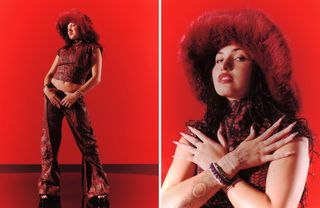
(Image credit: Jeff Hahn Styling: Co-Ord, Chet Lo; Shoes, Terry de Havilland; Hat, Emma Brewin; Ring, Vrai; Bracelets, Mabel’s Own)
In many ways, Mabel was quite literally born to be a pop star. She’s the daughter of Neneh Cherry, the trailblazing Swedish rapper and singer behind the ‘80s kiss-off anthem “Buffalo Stance”, and producer Cameron McVey, who worked with legendary British acts Massive Attack and Portishead. Mabel’s earliest material was created by “me and my brother”—(the songwriter slash producer Marlon Roudette, with whom she co-wrote “Finders Keepers”). “People are like, ‘Oh, nepo baby warning!’” Mabel tells me. “If my parents were doctors and I decided I was going to be a surgeon, nobody would really bat an eyelid.” She grew up surrounded by music; her first steps as a toddler took place on a tour bus.
Cherry and McVey, however, were not thrilled when Mabel landed her first record deal at the age of 19. “My parents were like, ‘Whoa, just wait a minute. Let’s help you really figure out who you are and what you want to do…’ I was like, ‘I don’t want to work shitty jobs, I want to live off my music… Fuck you!” she laughs ruefully. “You could never tell me when I was little, ‘Don’t touch the fire!’ I had to touch the candle and get burnt.” She gets their caution now, she says. “As a parent, all you want to do is protect your kid, right?”
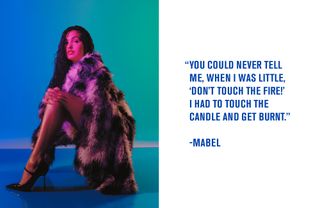
(Image credit: Jeff Hahn Styling: Coat, Ganni; Shoes, Paris Texas; Jewellery, Vrai)
Life accelerated to an almost unbearable speed. At her first BRITs performance, Mabel found herself performing alongside dozens of dancers for the first time—one of many deep ends she was hurled into as a young artist. She embarked on a whirlwind tour across the UK, Europe and North America, dealing with the white-hot glare of public scrutiny whilst trying to knock out new music at a workaholic pace. “I hardly saw my family,” she recalls. “It was quite lonely.” Her inner people-pleasing perfectionist kicked in even as she grew increasingly depressed. “You get in this mindset of: ‘I have to deliver something in the next 12 weeks,” she sighs. “I just don’t know where the pressure cooker came from.” The industry, she explains, teaches musicians that they’re only good if they rack up the views or win awards, “but I’ve had those things and I don’t think I was particularly happy,” she tells me.
Lockdown, in some ways, provided a perfect emergency exit. Mabel moved back in with her parents and tried to cultivate a life outside of music “that just means that I’m not the job, I’m not the character,” she says. She got pets—her two Italian greyhounds, Imani and Tahini, are currently padding around us in the kitchen—and started riding horses. Monetising her love of music was partly what got her into this mess, she explains. “When your hobby becomes your job, you need more hobbies, because it just changes the relationship to your creativity. I stopped playing and writing [music] just for fun.”
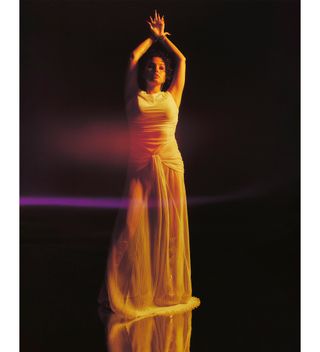
(Image credit: Jeff Hahn Styling: Dress, Rotate; Heels, Paris Texas; Jewellery, Vrai)
About Last Night… was envisioned as a post-lockdown love letter to clubs and big nights out. In interviews at the time, she situated her anxiety and depression very much in the rearview mirror—the message was that she was making her triumphant return to chart-busting stadium pop. “I thought, ‘I’m better. I’m totally healed.’” Her voice wobbles. “But then I got into this thing of… still trying to people please. Trying to be like, ‘I’m gonna do what I want to do’ but still thinking I wanted Top 20s and Top 10s.” Whilst the record did well, none of its singles cracked the charts in the same way as its predecessors. “I was so upset with myself because if I’d actually just been 100% true to myself then it wouldn’t have mattered.”
Then came the bottle-smashing incident. In the grand scheme of diva antics, it barely registers—but it was seismic for Mabel. “This is the first time I ever broke down like that in front of people,” she says. “It still took me months to realise that actually what happened was because I wasn’t communicating well and I wasn’t able to be honest with myself. It wasn’t me being a horrible person. I just wasn’t well.”
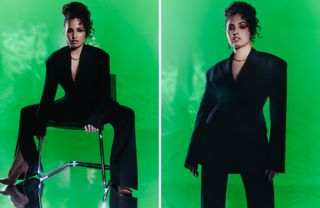
(Image credit: Jeff Hahn Styling: Suit, Feben; Shoes, Casadei; Necklaces and Earrings, Loveness Lee)
According to the Musicians Union, artists suffer more mental ill health than the general population, but the demands placed on them are enormous, particularly for young women. Face-game on point, body snatched—these are the kind of YouTube comments people expect to see on every female pop star’s page. It seems so punishing for the industry to expect creative people to create great art but put them on a schedule that you wouldn’t inflict on an investment banker, I say.
“Decisions that I made for myself,” Mabel adds. “I wanted to dance in the video. But where did those things come from? It comes from a larger pressure on women in the industry to be a triple threat.” After the release of About Last Night…, Mabel was, she says, “at the total edge”. What she once considered the most pleasurable activity in her life—making music—had become a source of despair. She considered quitting completely.
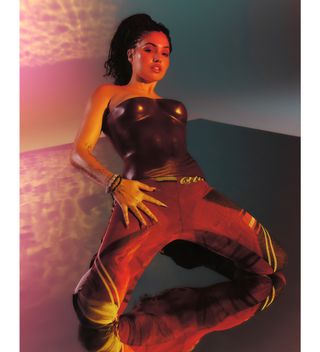
(Image credit: Jeff Hahn Styling: Corset, J Phoenix; Trousers, Ottolinger; Earrings, Vrai; Bracelets, Mabel’s Own)
What helped? “Therapy!” she shouts, breaking out into belly laughs. She began unpacking her identity in the counselling room. “I have insomnia, I have GAD [generalised anxiety disorder], I have chronic depression, seasonal depression,” she says, ticking off the list with good-natured humour. “All these things I actually just accept now.” She drew her family closer and began writing songs with her brother again, trying to get back to that younger version of herself who made music for the instinctive pleasure of it. “I placed so much of my value in my physical appearance and what people were saying about my weight and whether I looked pretty,” she explains. “Actually, how I look is the least interesting thing about me. It really is. I write songs. I read loads, I ride horses. I think I’m a good friend.”

And rather than being embarrassed, she realised that she should embrace her musical lineage. “My mum is such an icon,” Mabel emphasises. “She was always just like, ‘Middle finger up, I’m just going to do whatever the fuck I want.’” Mother and daughter recently visited the Azzedine Alaïa Foundation in Paris, where the fabric from Cherry’s Alaïa wedding dress is now protected by law as an artifact of historical importance. Mabel found herself bursting with pride.
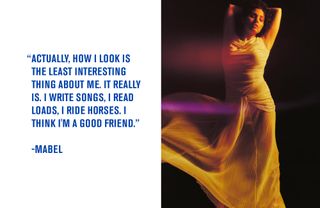
(Image credit: Jeff Hahn Styling: Dress, Rotate; Heels, Paris Texas; Jewellery, Vrai)
These days, the singer tries to be kinder to herself. “The reason I love music so much is because it’s something that can’t be controlled. It’s like the closest thing to magic that I know. Some days it happens and sometimes it doesn’t.” Her latest tracks—including the sultry Toni Braxton-esque “Female Intuition” and Shygirl collab “Look at My Body Pt. II”, with its sexy R&B stomp and pro-woman message—all tease a newer and more intriguing direction for someone who was once hailed as the inheritor of Dua Lipa’s straightforwardly pop throne.
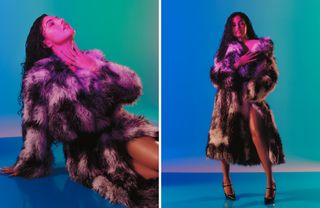
(Image credit: Jeff Hahn Styling: Coat, Ganni; Shoes, Paris Texas; Jewellery, Vrai)
On the Goldfinger-inspired shoot for “Female Intuition”, Mabel co-directed herself for the first time. She asked to be painted all gold, and, in the black-and-white music video, she positively gleams. She hasn’t even bothered to look at the number of views on her new videos. “If 10 people listen to them, I’m gassed, that’s great,” she says. Another North American tour beckons, and she’s releasing a song with Ty Dolla $ign this autumn. Mabel is taking all of this on her own terms, getting a feel for the joy of it again, and if she makes mistakes—piano-related or otherwise—she’ll learn from them. “I’m proud of what I’m doing,” she smiles. “I don’t need to disassociate and I don’t need to wear a mask. Creatively, it’s been really fun to experience for the first time—looking at myself on camera and being like, ‘Oh, that’s the person I am at home. That’s the woman my boyfriend knows and the girl my parents know.’”
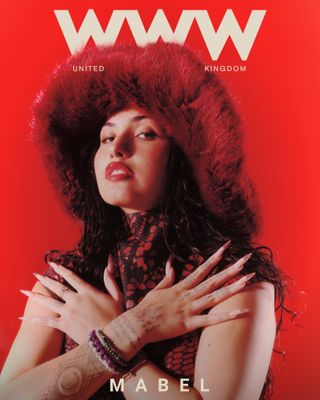
(Image credit: Jeff Hahn)
Photographer: Jeff Hahn
Hair Stylist: Shamara Roper
Makeup Artist: Hila Karmand
Manicurist: Lotte Clark
Stylist: Remy Farrell
Styling Assistant: Brittany Davy
Photography Assistant: Torgeir Rorvik, Rami Hassen
Digital Technician: Lucas Bullens
Art Director: Natalia Szytk
Editor in Chief: Hannah Almassi
Editor: Zing Tsjeng
Video: Jonathan Middleton
Executive Director, Entertainment: Jessica Baker
Copy Editor: Georgia Seago
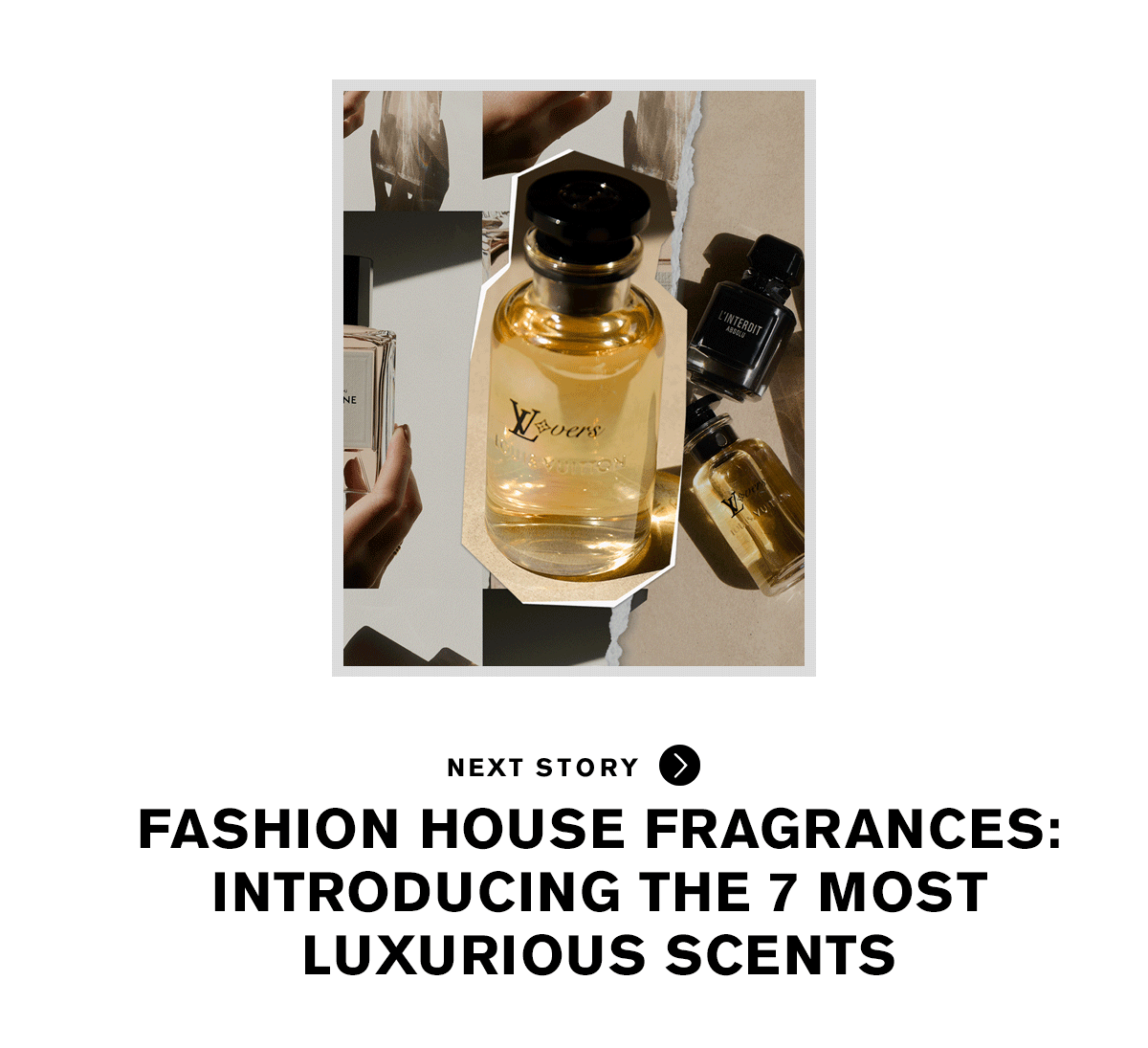
(Image credit: Future)







